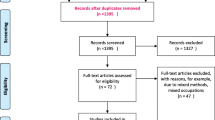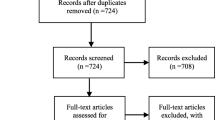Summary
Aim: Life-support courses (LSCs) are widely advocated, very popular and increasing in number but their effectiveness has been little studied. This paper presents a qualitative review of the evaluation literature of LSCs over the last fifteen years.
Method: Kirkpatrick’s hierarchy of the effect of educational interventions was applied as a framework to summarize the available literature. This hierarchy distinguishes four effect levels: (I) reactions in the learners, (II) learned knowledge and skills, (III) transfer: observed change in actual behaviour and (IV) outcome effects in patient care as a result of behavioural change. Publications on the evaluation of LSCs for doctors were reviewed and the results were categorized in this framework.
Results: Most literature was qualitative in nature, and did not permit quantitative conclusions on effects. On level I (reaction) generally positive results are reported. A learning effect (level II) is often found, but the retention of acquired skills has been less well studied and seems to be generally poor. Studies on transfer or behavioural change (level III) show mixed results. The effect of LSCs on patient outcome has not adequately been studied.
Conclusion: While life-support courses are probably a necessary and valued approach to the acquisition of life-support skills in doctors, enhancement of the long term retention of those skills needs further attention. Educational research tools must be developed to investigate better behavioural change leading to improved patient outcome, which can be considered the most important effects of LSCs.
Samenvatting
Korte bijscholingen op het gebied van spoedeisende geneeskunde zijn in de afgelopen decennia onder de generieke naam life-support cursussen (LSC’s) in Nederland toenemend aanbevolen en populair geworden. Hun effectiviteit is echter weinig onderzocht. In dit artikel wordt een evaluatie van LSC’s voor artsen gepresenteerd. Het model van Kirkpatrick wordt als raamwerk gebruikt om de literatuur te rangschikken onder de niveaus van reactie, leren, gedragsverandering in de praktijk (transfer) en resultaat hiervan in de patiëntenzorg. Het merendeel van de literatuur heeft een kwalitatief karakter en kwantitatieve conclusies zijn daarom niet mogelijk. LSC’s leiden in het algemeen tot een positieve reactie onder de deelnemers. Leren vindt vaak plaats, maar het retentie- interval blijkt dikwijls heel kort. Onderzoek naar gedragsverandering laat wisselende resultaten zien. Het effect van LSC’s op de kwaliteit van de patiëntenzorg is vooralsnog inadequaat onderzocht. Geconcludeerd kan worden dat LSC’s een noodzakelijke en hooggewaardeerde methode vormen om kennis en vaardigheden te verwerven in de spoedeisende geneeskunde. Meer aandacht dient echter besteed te worden aan het probleem van retentie op de langere termijn. Er moeten betere onderzoeksinstrumenten ontwikkeld worden om de effecten van LSC’s op gedragsverandering en patiëntenzorg in kaart te brengen. Het is uiteindelijk op deze niveaus dat de maatschappelijke waarde van deze cursussen zichtbaar moet worden.
Similar content being viewed by others
References
Heide PA van der, Toledo-Eppinga L van, Heide M van der, Lee JH van der. Assessment of neonatal resuscitation skills: a reliable and valid scoring system. Resuscitation. 2006;71:212-21.
Carapiet D, Fraser J, Wade A, et al. Changes in paediatric resuscitation knowledge among doctors. Arch Dis Child. 2001;84:412-4.
White JR, Shugerman R, Brownlee C, Quan L. Performance of advanced resuscitation skills by pediatric housestaff. Arch Pediatr Adolesc Med. 1998;152:1232-5.
Waisman Y, Amir L, Mor M, Mimouni M. Pediatric advanced life support (PALS) courses in Israel: ten years of experience. Isr Med Assoc J. 2005;7:639-42.
Driscoll P, Wardrop J. ATLS: past, present and future. Emerg Med J. 2005;22:2-3.
Han YY, Carcillo JA, Dragotta MA, et al. Early reversal of pediatric-neonatal septic shock by community physicians is associated with improved outcome. Pediatrics. 2003;112:793-9.
Davis M. Should there be a UK-based advanced trauma course? An educator's perspective. Emerg Med J. 2005;22:5-6.
Brennan RT, Braslow A, Batcheller AM, Kaye W. A reliable and valid method for evaluating cardiopulmonary resuscitation training outcomes. Resuscitation. 1996;32:85-93.
Norman G. RCT = results confounded and trivial: the perils of grand educational experiments. Med Educ. 2003;37:582-4.
Norcini JJ. Work based assessment. BMJ. 2003;326: 753-5.
Jabbour M, Osmond MH, Klassen TP. Life support courses: are they effective? Ann Emerg Med. 1996;28:690-8.
Shakiba H, Dinesh S, Anne MK. Advanced trauma life support training for hospital staff. Cochrane Database Syst Rev. 2004;CD004173.
Hutchinson L. Evaluating and researching the effectiveness of educational interventions. BMJ. 1999;318:1267-9.
Kirkpatrick DL, Kirkpatrick JD. Evaluating training programs: the four levels. San Francisco: Berrett-Koehler, 2005.
Taylor HA, Kiser WR. Reported comfort with obstetrical emergencies before and after participation in the advanced life support in obstetrics course. Fam Med. 1998;30:103-7.
Turner NM, Dierselhuis MP, Draaisma JMTh, Cate ThJ ten. The effect of the Advanced Paediatric Life Support course on perceived self-efficacy and use of resuscitation skills. Resuscitation. 2007;73:430-3.
Ali J, Adam R, Stedman M, et al. Cognitive and attitudinal impact of the Advanced Trauma Life Support program in a developing country. J Trauma. 1994;36:695-702.
Quan L, Shugerman RP, Kunkel NC, Brownlee CJ. Evaluation of resuscitation skills in new residents before and after pediatric advanced life support course. Pediatrics. 2001;108:E110.
Waisman Y, Amir L, Mimouni M. Does the pediatric advanced life support course improve knowledge of pediatric resuscitation? Pediatr Emerg Care. 2002;18:168-70.
Nelson MS. How quickly they forget. Am J Emerg Med. 1988;6:538-9.
Ali J, Howard M, Williams J. Is attrition of advanced trauma life support acquired skills affected by trauma patient volume? Am J Surg. 2002;183:142-5.
Azcona LA, Gutierrez GE, Fernandez CJ, et al. Attrition of advanced trauma life support (ATLS) skills among ATLS instructors and providers in Mexico. J Am Coll Surg. 2002;195:372-7.
Wolfram RW, Warren CM, Doyle CR, et al. Retention of Pediatric Advanced Life Support (PALS) course concepts. J Emerg Med. 2003;25:475-9.
Marshall RL, Smith JS, Gorman PJ, et al. Use of a human patient simulator in the development of resident trauma management skills. J Trauma. 2001;51:17-21.
Nadel FM, Lavelle JM, Fein JA, et al. Teaching resuscitation to pediatric residents: the effects of an intervention. Arch Pediatr Adolesc Med. 2000; 154:1049-54.
Kaye W, Mancini ME, Rallis SF. Advanced cardiac life support refresher course using standardized objective-based Mega Code testing. Crit Care Med. 1987;15:55-60.
Carley S, Driscoll P. Trauma education. Resuscitation. 2001;48:47-56.
Olden GD van, Meeuwis JD, Bolhuis HW, et al. Clinical impact of advanced trauma life support. Am J Emerg Med. 2004;22:522-5.
Ali J, Adam R, Stedman M, et al. Advanced trauma life support program increases emergency room application of trauma resuscitative procedures in a developing country. J Trauma. 1994;36:391-4.
Olden GD van, Meeuwis JD, Bolhuis HW, et al. Advanced trauma life support study: quality of diagnostic and therapeutic procedures. J Trauma. 2004;57:381-4.
Mansfield CJ, Price J, Frush KS, Dallara J. Pediatric emergencies in the office: are family physicians as prepared as pediatricians? J Fam Pract. 2001;50: 757-61.
Cline DM, Welch KJ, Cline LS, Brown CK. Physician compliance with advanced cardiac life support guidelines. Ann Emerg Med. 1995;25:52-7.
Murphy M, Fitzsimons D. Does attendance at an immediate life support course influence nurses' skill deployment during cardiac arrest? Resuscitation. 2004;62:49-54.
Ali J, Cohen R, Adam R, et al. Attrition of cognitive and trauma management skills after the Advanced Trauma Life Support (ATLS) course. J Trauma. 1996;40:860-6.
Schneider T, Mauer D, Diehl P, et al. Does standardized mega-code training improve the quality of pre-hospital advanced cardiac life support (ACLS)? Resuscitation. 1995;29:129-34.
Camp BN, Parish DC, Andrews RH. Effect of advanced cardiac life support training on resuscitation efforts and survival in a rural hospital. Ann Emerg Med. 1997;29:529-33.
Ariyanayagam DC, Naraynsingh V, Maraj I. The impact of the ATLS course on traffic accident mortality in Trinidad and Tobago. West Indian Med J. 1992;41:72-4.
Turner NM, Hoog M de, Ekkelkamp S. Het `gouden uur' in de kindergeneeskunde: de kunst van het pathofysiologische alfabet. Tijdschr Kindergkd. 2004;72:78-82.
Dane FC, Russell-Lindgren KS, Parish DC, et al. In-hospital resuscitation: association between ACLS training and survival to discharge. Resuscitation. 2007;47:83-7.
Townsend RN, Clark R, Ramenofsky ML, Diamond DL. ATLS-based videotape trauma resuscitation review: education and outcome. J Trauma. 1993;34:133-8.
Author information
Authors and Affiliations
Corresponding author
Additional information
Dr. N.M. Turner, Consultant Paediatric Anaesthesiologist, Department of Perioperative Care and Emergency Medicine, Wihelmina Children’s Hospital, prof. dr. Th.J. ten Cate, Professor of Medical Education and Director of the Centre for Research and Development of Education, University Medical Centre, Utrecht.
Address for correspondence: Nigel Turner, Divisie DP&S, Afdeling Pelikaan, Wilhelmina Kinderziekenhuis, UMC Utrecht, Postbus 85090, 3508 AB Utrecht,
Rights and permissions
About this article
Cite this article
Turner, N.M., ten Cate, T.J. Evaluating the effectiveness of life-support courses. KIND 76, 304–310 (2008). https://doi.org/10.1007/BF03078224
Issue Date:
DOI: https://doi.org/10.1007/BF03078224




